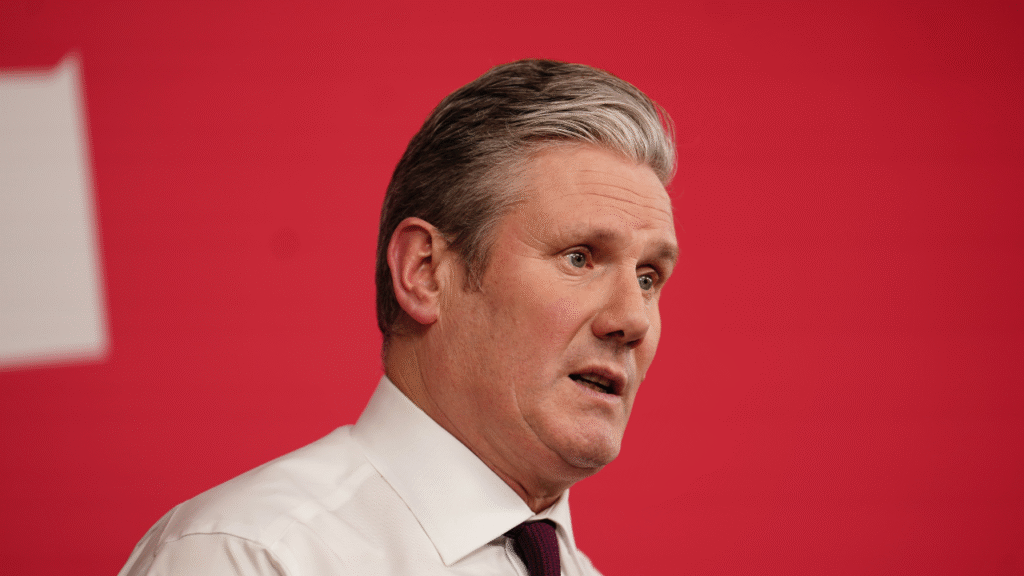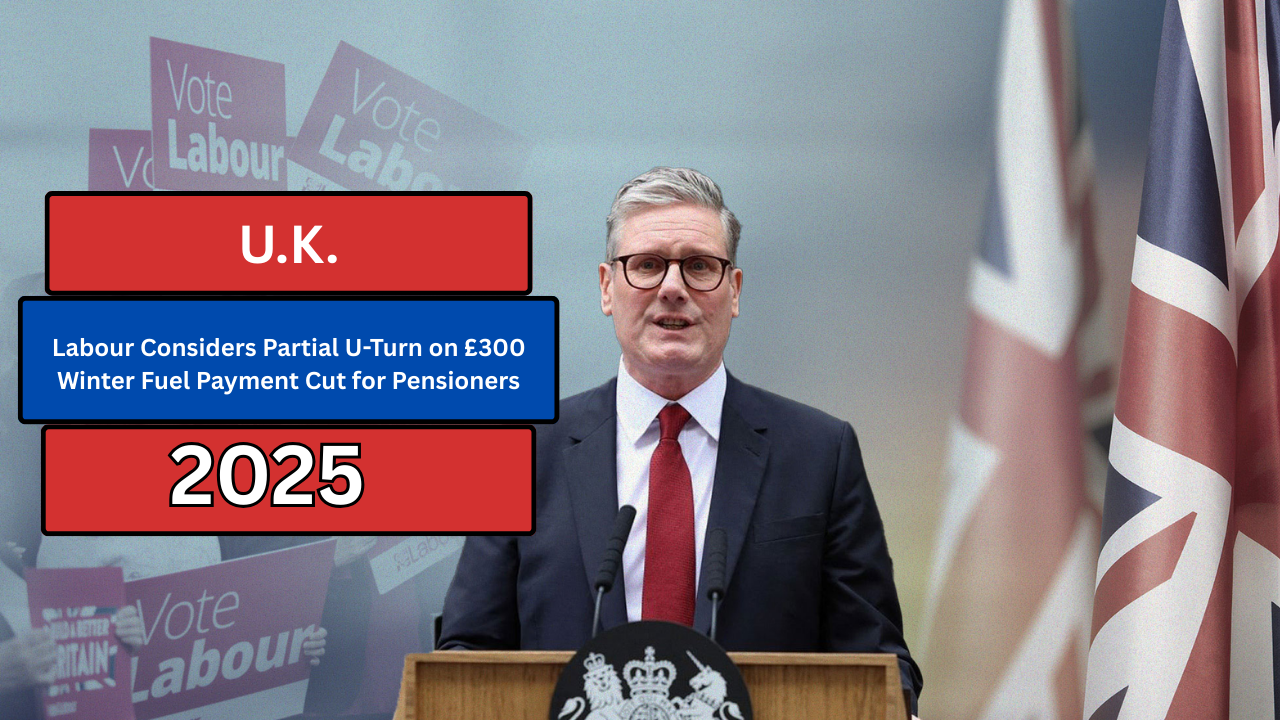In a significant update regarding the controversial £300 cut to the Winter Fuel Payment, Labour Party government insiders have stated that “nothing is imminent” concerning a complete reversal.
Amid growing concerns that the decision could lead to severe electoral damage, Labour is reassessing its stance on the cut. While a full reversal is unlikely for now, the party is considering alternatives to address the impact of this controversial measure.
The Guardian reported that Labour is rethinking the cut, which has caused concern for many, especially among older and vulnerable communities.
The cut, which reduces the Winter Fuel Payment for some pensioners, has sparked public anxiety, and there are growing calls for a policy shift. Some Labour insiders are suggesting that a partial U-turn might help alleviate concerns without appearing weak. However, there is still no indication that any immediate action will be taken.
Labour’s Strategy: No Rush for a Full Reversal
The Labour Party is cautious about any sudden policy shifts. No 10 Downing Street has reportedly advised its Members of Parliament (MPS) not to panic, reassuring them that the results from the previous week’s political outcomes were a bigger blow to the Conservative Party than to Labour.
Despite the growing dissatisfaction among certain groups, the Labour leadership seems committed to sticking with their current approach for now, with the potential for gradual changes down the line.
In the short term, Labour is not considering a “full” reversal of the £300 Winter Fuel Payment cut. Instead, the party is exploring whether to adjust the £11,500 threshold for pensioners, above which they are no longer eligible for the Winter Fuel Payment.
This adjustment, though not a complete reversal, could provide some relief to pensioners in financial need, without necessitating a total policy overhaul.
The Controversial Decision: Means-Testing Winter Fuel Payments
The Department for Work and Pensions (DWP), led by Liz Kendall, has been defending the means-testing of Winter Fuel Payments, claiming it was a necessary measure to balance the government’s books.
In a letter addressed to Debbie Abrahams, the Labour Chair of the Work and Pensions Select Committee, Kendall explained that the decision to means-test the Winter Fuel Payments was not one that the government had anticipated.
However, given the £22 billion deficit the government inherited, they were forced to make tough choices regarding public spending.
Kendall stated: “Given the dire state of the public finances, it’s right that we target support to those who need it most while we continue our work to fix the foundations and stabilise the economy.”
This justification has not gone down well with many, especially pensioners who feel the cut disproportionately affects them, and critics argue that it could exacerbate financial insecurity for some of the UK’s most vulnerable citizens.
Keir Starmer’s Comments on Pensioner Support

Labour Leader Keir Starmer has attempted to address some of the concerns surrounding the Winter Fuel Payment cut. Speaking to reporters at the G20 summit in Rio, Starmer emphasised that the party’s efforts to increase pension credit would provide an additional benefit to pensioners.
Starmer explained: “We’ve had a campaign to drive up pension credit, to get more pensioners on to pension credit, which obviously is not only a guarantee of the winter fuel allowance but also gives the credit itself. So there’s an additional benefit there.”
This approach seeks to ensure that pensioners are better off in the long term, despite the short-term impact of the Winter Fuel Payment cut.
According to Starmer, by stabilising the economy, Labour is helping pensioners navigate their financial difficulties. While some may see this as a promising strategy, others are concerned that it does not do enough to address the immediate concerns of pensioners who are already struggling.
Labour’s Continued Concerns Over the Cut’s Impact
Despite the party’s efforts to shift focus onto pension credit and long-term economic stability, there remains a vocal concern within Labour regarding the Winter Fuel Payment cuts’ impact on the poorest pensioners.
Debbie Abrahams, Labour’s Chair of the Work and Pensions Select Committee, echoed these concerns. “We remain concerned by the impact that restricting winter fuel payments might have on poorer pensioners,” she said. “We’ll be watching the issue closely.”
Helen Whately, Labour’s shadow work and pensions secretary, also spoke out, calling on the party to reverse the cut. “Finally, the dam breaks and we get to see what Labour has known all along.
Now the true impact of their cut has been revealed, it’s time for Labour to reverse it,” Whately said. These remarks reflect the ongoing tension within Labour regarding the effectiveness of their current stance on pensioner support.
Public and Political Pressure Mounts
The issue has ignited considerable debate, with growing pressure from both within the party and from the public to reverse the Winter Fuel Payment cut. Pensioners, particularly those on lower incomes, have felt the brunt of the decision, and many have criticised the government’s decision to target those who are most in need.
The ongoing economic challenges have only heightened the sense of urgency, as those who rely on these payments to stay warm during the winter months fear the worst.
Additionally, political opponents continue to hold Labour accountable for what many perceive as a failure to prioritise the welfare of pensioners.
Critics argue that even if a partial reversal is implemented, it would still fall short of addressing the needs of the most vulnerable members of society.
Conclusion: Labour’s Next Steps
The ongoing debate surrounding the Winter Fuel Payment cut highlights the delicate balance Labour must strike between fiscal responsibility and addressing the needs of the most vulnerable citizens.
While a full reversal may not be on the cards for now, Labour is considering alternative measures to ensure pensioners are adequately supported. As political pressure increases and public concerns grow, Labour will need to navigate this issue carefully to avoid further alienating their base and risking their electoral chances.
In the coming weeks, it will be interesting to see whether the party implements any changes to its current policy or if the status quo remains in place.
One thing is clear: the Winter Fuel Payment cut will continue to be a key issue for Labour as they look to rebuild trust with pensioners and other vulnerable groups in society.



